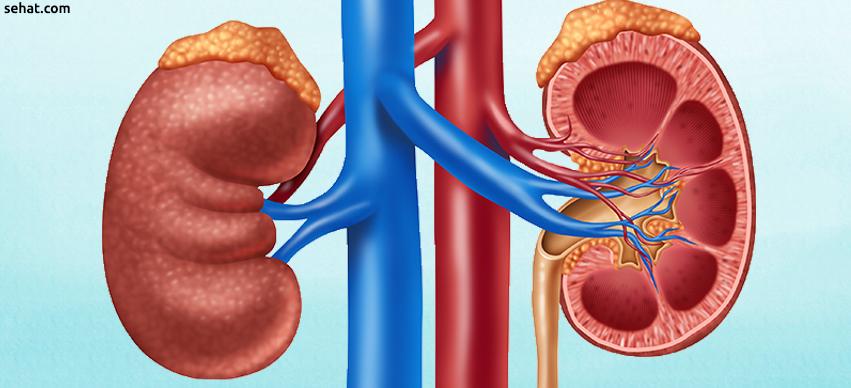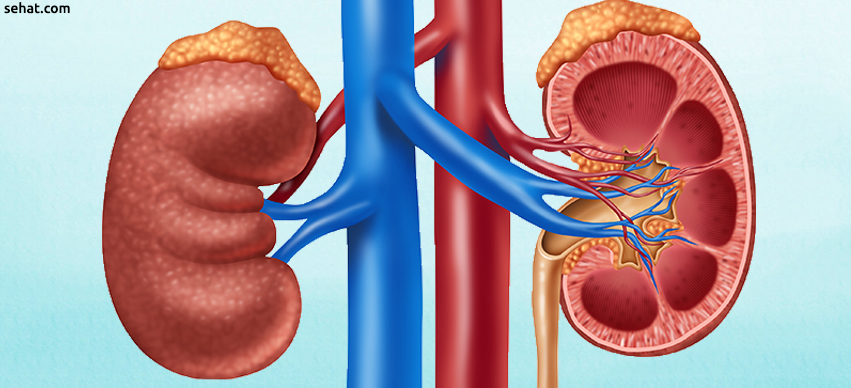
There are two kidneys, each about the size of a fist, located on either side of the spine at the lowest level of the rib cage. Each kidney contains up to a million functioning units called nephrons.
Most people know that a major function of the kidneys is to remove waste products (filtration of blood) and excess fluid from the body as urine.
The production of urine involves highly complex steps of excretion and reabsorption.
The Main Function of Kidney is That:
- Removes waste products from the body
- Removes drugs from the body
- Balance’s the body's fluids
- Releases hormones that regulate blood pressure
- Produce’s an active form of vitamin D that promotes strong, healthy bones
- Control’s the production of red blood cells
Each kidney contains up to a million functioning units called nephrons. A nephron consists of a filtering unit of tiny blood vessels called a glomerulus attached to a tubule.
The kidneys perform their life-sustaining job of filtering and returning to the bloodstream about 200 quarts of fluid every 24 hours.
Unfortunately, if your kidneys start to malfunction, you may not diagnose it for a long while.
Kidney disease usually affects both kidneys. The leading causes of kidney failure are diabetes and high blood pressure.
Six Warning Signs Of Kidney Diseases Are:
- High blood pressure.
- Blood and/or protein in the urine.
- A creatinine and Blood Urea Nitrogen (BUN) blood test, outside the normal range. BUN and creatinine are waste that builds up in your blood when your kidney function is reduced.
- A glomerular filtration rate (GFR) less than 60. GFR is a measure of kidney function.
- More frequent urination, particularly at night; difficult or painful urination.
- Puffiness around eyes, swelling of hands and feet.
Types Of Kidney Problems
- Chronic Kidney Disease (CKD)
- Acute Kidney Injury
- Blood in your urine (Hematuria)
- Protein in your urine (Proteinuria)
- Nephrotic Syndrome
- Polycystic Kidney Disease
- Kidney Stones
Various Treatments Available
- Hemodialysis
- Kidney Transplant
- Peritoneal Dialysis (PD)
- Vascular Access
- Medical Management
Careful control of diseases like diabetes and high blood pressure can help prevent kidney disease or keep it from getting worse. Kidney stones and urinary tract infections can usually be treated successfully.
Lifestyle Tips For Kidney Disease
- Lose any excess weight and exercise regularly (at least 150 minutes each week for the average adult). Find out if you are a healthy weight using this tool to check your BMI. Read more about how to lose weight.
- Stop smoking. Read more about how the NHS can help you stop smoking.
- Eat a healthy, balanced diet. Read how to achieve a balanced diet.
- Reduce the salt in your diet to help keep your blood pressure down. Read more about how to cut down on salt.
- Take extra care to keep your blood pressure and blood sugar at normal levels if you have diabetes or high blood pressure.
- Drink water normally and when you feel you want to, unless you've been advised otherwise by your doctor or dietitian. There is no evidence that drinking extra water or fluids will help if you have kidney disease. Read more about how much water you should drink.
- Reduce the amount of cholesterol in your diet. Cholesterol increases blood pressure and can impair kidney function.
- Sehat provides list of best Kidney Doctors in Hyderabad from which you can research and choose the right doctor for your condition.

